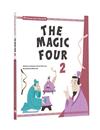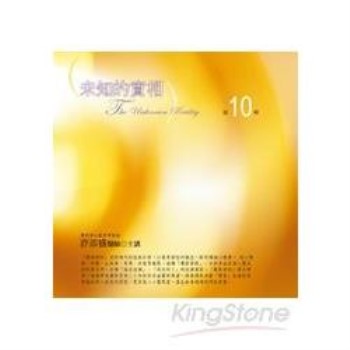No sound, no problem! (掩耳盜鈴)
Groundless worries (杞人憂天)
There are hundreds more of these Chinese idioms (chengyu) that pack a lot of meaning into four characters.
Many of these Chinese idioms originate from historical events, classics, and folklore; they give us valuable insights into Chinese culture, history, and literature.
Aimed at English learners, The Magic Four groups together some of these well-known stories with attitude and behaviour as its theme.
Each story is accompanied with extra learning elements:
• The literal and figurative meanings;
• A similar idiom/phrase in the English language;
• Definitions of useful vocabularies in the story;
• Meanings of different idioms/phrases used in the stories and examples.
Not only will you gain insight into Chinese wisdom accumulated for centuries but also learn fun aspects of the English language too!
作者簡介:
Authors:
Catherine Chan
For over two decades, Catherine Chan worked for major newspaper companies that publish English educational titles. She had initiated student publications for primary and secondary students, and book projects, ranging from educational materials to children stories to university publications. Currently, Catherine is the Consulting Editor for Hong Kong Economic Journal (Education section), and has launched her own audio-enabled publication for young children titled BINGO!
Simon Lau
Born in England, Simon has been working in education and the media in Hong Kong since 1996. He has worked as a writer and editor for South China Morning Post, Pearson, Hong Kong Economic Times, The Standard (published under the Sing Tao Group) and Hong Kong Economic Journal. He has worked as a certified examiner for various Cambridge English exams and has written and published humorous short stories and poems.
Illustrator:
William Ma
Born in Shandong and now living in Guangzhou, William is an illustrator whose drawings have been published in children's books and magazines for two decades. Watercolour version of the artwork in this book first appeared in The Korea Herald, an English language national newspaper published in South Korea. William has produced books and cards together with kindergarteners to create their masterpieces.
作者序
愚 公 移 山
Where there's a will, there's a way
Ever since he was a child, the 90-year-old Yugong would open the front door of his home, look at what lay ahead, and then go “ARRGH!”
He lived to the north of the Taihang and Wangwu mountains, which were situated near the Yellow River in Henan Province. Whenever Yugong and his family wanted to travel south, it was a long, circuitous, and arduous journey because the mountains blocked their way.
One day, Yugong was so fed up that he called a family meeting.
“It's about time we did something about those mountains,” Yugong said, with a fiery look in his eyes. “Let's work together to get rid of them!”
Everyone in the room clapped and cheered — apart from Yugong's wife. “Hey, foolish old man,” she said. “You can’t even level a small mound, let alone a large mountain range. And where will you dispose of the soil and rocks?”
“Easy!” her eldest son exclaimed. “We will dump them in the sea.” His entire family cheered again, thinking that was a good idea too.
From morning to night, Yugong led his children and grandchildren in the slow, backbreaking work of
chipping away at the mountains. An elderly neighbour stopped by to watch them at work. He walked over to
Yugong and gave a little chuckle while shaking his head.
“You're as daft as a brush,” the neighbour said. “It will never happen in your lifetime.”
The defiant Yugong replied: “You're the ignorant one. When I'm gone, my sons will continue the
job, then my grandchildren will keep removing the mountains, and then my great-grandchildren
too, and so on for many generations to come. The mountains won't grow any higher and will be
gone… eventually!”
The neighbour responded by shaking his head.
The mountain gods heard every word of their conversation and were greatly alarmed, so they went to see the Heavenly Emperor and told him everything.
“It would have been much easier to move his home,” the mountain gods stated, “but this crazy, old fool wants to destroy our mountains even if it takes them hundreds of years and a long line of descendants to do so.”
Much to the mountain gods' surprise, the Heavenly Emperor was deeply moved by Yugong's unwavering determination. He decided to reward the old man by ordering two giants to remove the mountains.
A few days later, Yugong opened his front door, saw the Yellow River lay ahead of him, and for the first time in his life, he said, “Ahhhh!”
愚公移山
Literal meaning
the foolish old man removes the mountains
Figurative meaning
tireless efforts to achieve one's goals; or inefficient efforts
Similar phrase in English
where there's a will, there's a way
e.g. They said it was impossible, but I can now touch my nose with my tongue. Where there's a will, there's a way.
Learn about words
1. circuitous adj. : indirect or not straight
2. arduous adj. : difficult and requiring great effort
3. level v. : to make a surface flat or even
4. defiant adj. : openly resisting to do what someone tells you to do
Learn some phrases
1. chip away at something
to slowly destroy or breaking small pieces off something
e.g. The workers keep chipping away at the wall to remove it.
2. daft as a brush
stupid or foolish
e.g. Jo is as daft as a brush. She thinks meatballs are grown on trees.(序)
Welcome once again to the Chinese Idiom Stories: The Magic Four series. We want to show you that Chinese idioms are magical! If you are still not sure, here is an example of when you might want to use them.
Imagine you are playing a video game with your friends but you keep losing. You want to bury your head in the sand, hoping the embarrassment will go away if you close your eyes and block your ears. That does not work, so you decide to throw in the towel.
But where is the sand you want to bury your head in? In fact, this is an example of figurative language. Instead of saying you want to avoid an unpleasant situation by pretending it does not exist, you can use colourful imagery and actions to make the description memorable. The same goes for “throw in the towel”, which means to quit because you know you cannot succeed. The origin of this idiom comes from boxing trainers literally throwing a towel in the boxing ring to immediately stop a fight and admit defeat if they see their fighter getting hurt.
You may not be familiar with those two English idioms, but you have probably heard of 掩耳盜鈴 and 半途而廢 to express the same ideas respectively. These Chinese idioms consist of only four characters, but they conjure up stories of a foolish burglar with blocked earholes attempting to smash a bronze bell and of a tough wife berating her weak-willed husband for quitting his studies and coming home early. So much can be told with so little.
The theme for Chinese Idiom Stories: The Magic Four 2 is attitude and behaviour. By reading these stories, you will gain a deeper understanding of Chinese wisdom accumulated over the centuries. The modern world is vastly different to imperial China, but universal truths will always remain. Just like the plays of William Shakespeare, stories that teach us about the human condition will always remain relevant and timeless, and these idiom stories have proven they will never die out or go out of fashion.
Catherine Chan, Simon Lau & William Ma
愚 公 移 山
Where there's a will, there's a way
Ever since he was a child, the 90-year-old Yugong would open the front door of his home, look at what lay ahead, and then go “ARRGH!”
He lived to the north of the Taihang and Wangwu mountains, which were situated near the Yellow River in Henan Province. Whenever Yugong and his family wanted to travel south, it was a long, circuitous, and arduous journey because the mountains blocked their way.
One day, Yugong was so fed up that he called a fam...
目錄
A contradiction in terms
自相矛盾
Run counter to the correct route
南轅北轍
Blow hot and cold
朝三暮四
No sound, no problem!
掩耳盜鈴
The copycat walker
邯鄲學步
Not letting nature take its course
揠苗助長
Set in one’s ways
刻舟求劍
Riding on the coattails of virtuosos
濫竽充數
Give a brick, get jade back
拋磚引玉
A pale imitation of a beauty
東施效顰
Closing the stable door after the horse has bolted
臨渴掘井
Throw in the towel
半途而廢
If you put your mind to it, you can accomplish anything
鐵杵成針
To have a clear picture in one's mind
胸有成竹
Not rest on your laurels
百尺竿頭
It's all in your mind
杯弓蛇影
Delusions of grandeur
夜郎自大
Party like you just don't care
樂不思蜀
Where there's a will, there's a way
愚公移山
Groundless worries
杞人憂天
Index
A contradiction in terms
自相矛盾
Run counter to the correct route
南轅北轍
Blow hot and cold
朝三暮四
No sound, no problem!
掩耳盜鈴
The copycat walker
邯鄲學步
Not letting nature take its course
揠苗助長
Set in one’s ways
刻舟求劍
Riding on the coattails of virtuosos
濫竽充數
Give a brick, get jade back
拋磚引玉
A pale imitation of a beauty
東施效顰
Closing the stable door after the horse has bolted
臨渴掘井
Throw in the towel
半途而廢
If you put your mind to it, you can accomplish anything...












